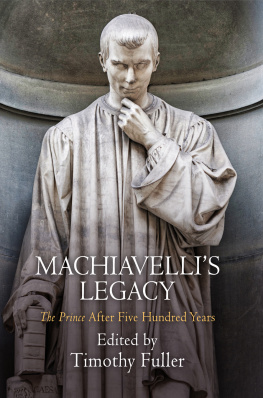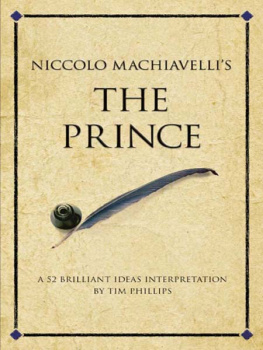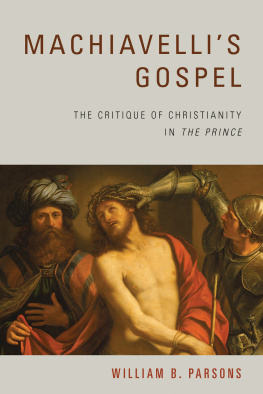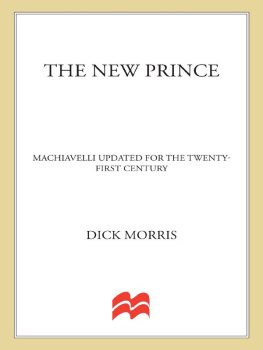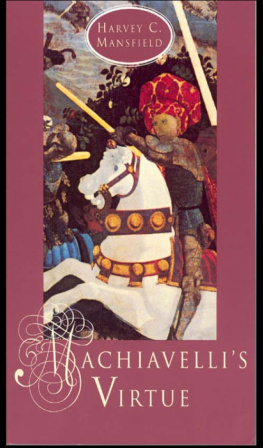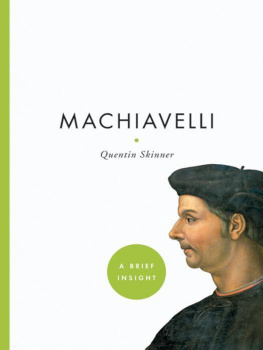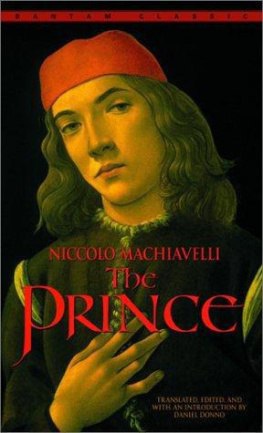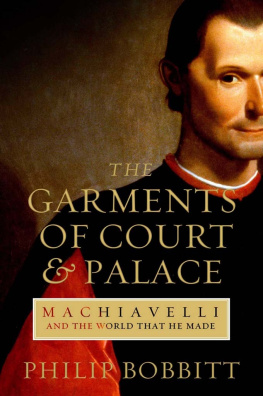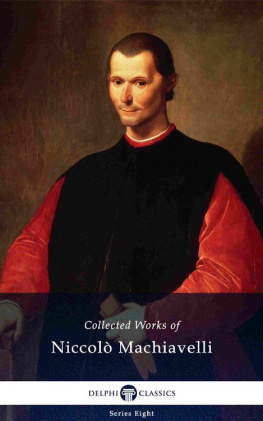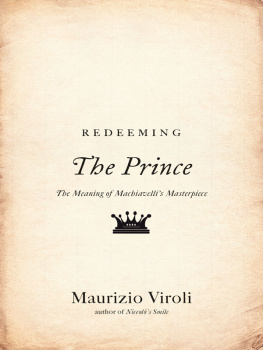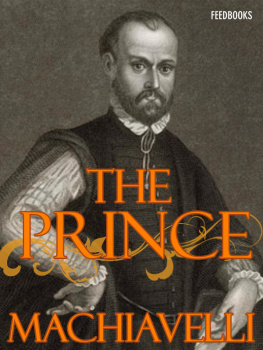Timothy Fuller - Machiavellis Legacy: The Prince After Five Hundred Years
Here you can read online Timothy Fuller - Machiavellis Legacy: The Prince After Five Hundred Years full text of the book (entire story) in english for free. Download pdf and epub, get meaning, cover and reviews about this ebook. City: Philadelphia, year: 2015, publisher: University of Pennsylvania Press, genre: Science / Politics. Description of the work, (preface) as well as reviews are available. Best literature library LitArk.com created for fans of good reading and offers a wide selection of genres:
Romance novel
Science fiction
Adventure
Detective
Science
History
Home and family
Prose
Art
Politics
Computer
Non-fiction
Religion
Business
Children
Humor
Choose a favorite category and find really read worthwhile books. Enjoy immersion in the world of imagination, feel the emotions of the characters or learn something new for yourself, make an fascinating discovery.
- Book:Machiavellis Legacy: The Prince After Five Hundred Years
- Author:
- Publisher:University of Pennsylvania Press
- Genre:
- Year:2015
- City:Philadelphia
- Rating:5 / 5
- Favourites:Add to favourites
- Your mark:
Machiavellis Legacy: The Prince After Five Hundred Years: summary, description and annotation
We offer to read an annotation, description, summary or preface (depends on what the author of the book "Machiavellis Legacy: The Prince After Five Hundred Years" wrote himself). If you haven't found the necessary information about the book — write in the comments, we will try to find it.
Niccolo Machiavellis The Prince is one of the most celebrated and notorious books in the history of Western political thought. It continues to influence discussions of war and peace, the nature of politics, and the relation of private ethics to public duties. Ostensibly a sixteenth-century manual of instruction on certain aspects of princely rule and behavior, The Prince anticipates and complicates modern political and philosophical questions. What is the right order of society? Can Western politics still be the model for progress toward peace and prosperity, or does our freedom to create our individual purposes and pursuits undermine our public responsibilities? Are the characteristics of our politics markedly different, for better or for worse, than the politics of earlier eras? Machiavelli argues that there is no ideal, transcendent order to which one can conform, and that the right order is merely the one that has the capacity to persist over time. The Princes emphasis on the importance of an effective truth over any abstract ideal marks it as one of the first works of modern political philosophy.
Machiavellis Legacy situates Machiavelli in general and The Prince in particular at the birth of modernity. Joining the conversation with established Machiavelli scholars are political theorists, Americanists, and international relations scholars, ensuring a diversity of viewpoints and approaches. Each contributor elucidates different features of Machiavellis thinking, from his rejection of classical antiquity and Christianity, to his proposed dissolution of natural roles and hierarchies among human beings. The essays cover topics such as Machiavellis vision for a heaven-sent redemptive ruler of Italy, an argument that Machiavelli accomplished a profoundly democratic turn in political thought, and a tough-minded liberal critique of his realistic agenda for political life, resulting in a book that is, in effect, a spirited conversation about Machiavellis legacy.
Contributors: Thomas E. Cronin, David Hendrickson, Harvey Mansfield, Clifford Orwin, Arlene Saxonhouse, Maurizio Viroli, David Wootton, Catherine Zuckert.
Timothy Fuller: author's other books
Who wrote Machiavellis Legacy: The Prince After Five Hundred Years? Find out the surname, the name of the author of the book and a list of all author's works by series.

